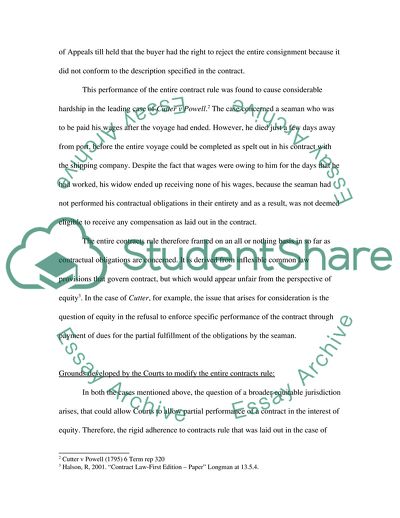Cite this document
(Cutter vs Powell Essay Example | Topics and Well Written Essays - 2500 words, n.d.)
Cutter vs Powell Essay Example | Topics and Well Written Essays - 2500 words. https://studentshare.org/law/1705880-discuss-the-leading-case-of-cutter-v-powell-1795-6-term-rep-320-101-er-573-is-the-entire-contracts-rule-still-meaningful-in-light-of-the-exceptions-to-it
Cutter vs Powell Essay Example | Topics and Well Written Essays - 2500 words. https://studentshare.org/law/1705880-discuss-the-leading-case-of-cutter-v-powell-1795-6-term-rep-320-101-er-573-is-the-entire-contracts-rule-still-meaningful-in-light-of-the-exceptions-to-it
(Cutter Vs Powell Essay Example | Topics and Well Written Essays - 2500 Words)
Cutter Vs Powell Essay Example | Topics and Well Written Essays - 2500 Words. https://studentshare.org/law/1705880-discuss-the-leading-case-of-cutter-v-powell-1795-6-term-rep-320-101-er-573-is-the-entire-contracts-rule-still-meaningful-in-light-of-the-exceptions-to-it.
Cutter Vs Powell Essay Example | Topics and Well Written Essays - 2500 Words. https://studentshare.org/law/1705880-discuss-the-leading-case-of-cutter-v-powell-1795-6-term-rep-320-101-er-573-is-the-entire-contracts-rule-still-meaningful-in-light-of-the-exceptions-to-it.
“Cutter Vs Powell Essay Example | Topics and Well Written Essays - 2500 Words”. https://studentshare.org/law/1705880-discuss-the-leading-case-of-cutter-v-powell-1795-6-term-rep-320-101-er-573-is-the-entire-contracts-rule-still-meaningful-in-light-of-the-exceptions-to-it.


